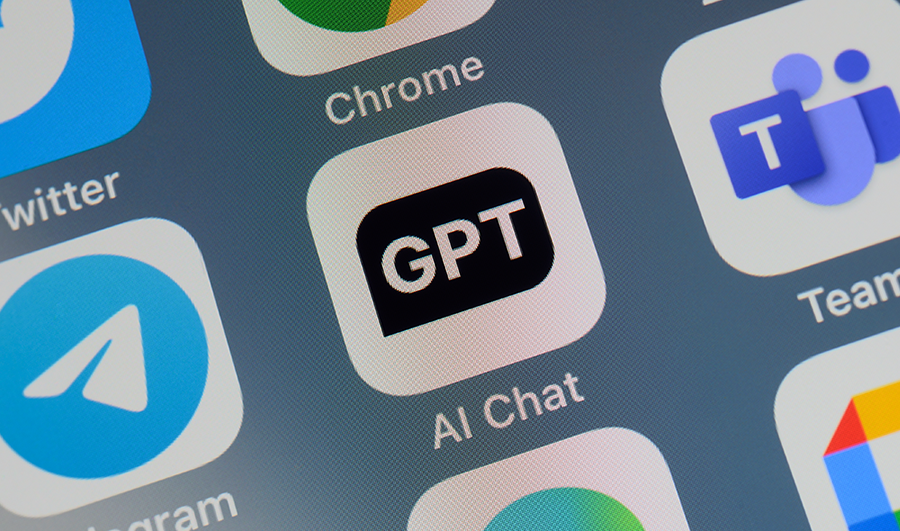ChatGPT由OpenAl于2022年11月推出,在服务的头几个月里就有了大幅增长。这个基于变压器的模型有1750亿参数,可以进行类似人类的对话。它被全球的讲师、院士、作家和内容创作者用来写诗、推荐阅读的书籍、写论文和SEO优化的内容。尽管ChatGPT功能强大,但它也带来了一些网络安全风险。
ChatGPT网络安全风险及安全对策
网络罪犯总是对攻击猎物或窃取敏感数据的途径保持警惕。虽然几乎没有数据支持这些说法,但ChatGPT存在一些漏洞和网络犯罪活动的风险途径。恶意方可以使用这种生成式人工智能工具来创建内容,以引诱或窃取其目标。想知道这款应用程序可能给数字世界带来的风险吗?以下是与OpenAl ChatGPT相关的五个网络安全风险。
1. 恶意代码的扩散
Al聊天机器人的一个潜在破坏力是它的代码编写能力。精通技术的网络罪犯可以利用这个程序来编写和使用代码,以达到恶意目的。犯罪分子可以编写带有加密和恶意脚本的低级网络工具。他们可以诱骗猎物点击指向含有恶意脚本的应用程序或程序的链接。最终,这使他们能够访问受害者的敏感银行和个人信息。
人工智能聊天机器人编写的脚本只需要很少的人类贡献,这加快了坏人的黑客企图。由于这种人工智能驱动的工具没有一个内置的系统来标记恶意代码的编写,它可以帮助网络黑客活动。
2. 预计会有更多的网络钓鱼邮件
网络钓鱼是世界上最具灾难性的网络犯罪之一,黑客每天发送大约34亿封垃圾邮件。谷歌反网络钓鱼机器人每24小时只能拦截1亿封网络钓鱼邮件。这个统计数据表明Gmail用户每天都会暴露到的漏洞。遗憾的是,ChatGTP能够写出令人信服的、无可挑剔的电子邮件,这让黑客们得以扩大他们的网络钓鱼企图。
尽管ChatGPT运行在智能技术上,不支持创建恶意内容,但黑客仍然可以通过更改提示的措辞来操纵它。黑客可以使用这个Al聊天机器人创建独特而诱人的电子邮件,具有准确的语法和接近人类水平的情感吸引。事实上,该应用程序可以在短短几秒钟内写许多电子邮件,这使得网络罪犯很容易瞄准更多的受害者,造成更多的伤害,而不需要太多的努力。
3. 内置翻译帮助黑客显得真实可信
ChatGPT的一个令人印象深刻的特性是它支持20种不同的语言。该应用程序编写文本的独特能力,以达到全球受众,使用户能够本地化他们的网站和目标国际市场。尽管功能非常出色,但该应用程序仍然可以支持对无辜受害者的恶意攻击。
俄罗斯黑客最近试图绕过ChatGPT关于恶意使用的规定。不幸的是,这些尝试都取得了成功,这表明当有深度黑客知识的人使用该应用程序时是多么不安全。他们攻击的结果显示,任何人都可以绕过该应用程序的地理限制。因此,黑客可以执行各种活动,将此应用程序变成一个犯罪中心。
4. 数据安全漏洞激增
ChatGPT运行在一个复杂的语言模型和来自第三方的大量数据上。它能够检测模式并计算信息以创建可读数据。ChatGPT的信息来源不能证明其安全性,也不能生成证明其安全性的数据。让你惊讶的是,这个应用程序不需要请求许可就可以使用和重用数据。
生成的数据可以随时在线获取,如果使用不当,可能会引发完整性破坏。换句话说,这个人工智能内容生成应用程序使用的数据可能违反保密协议。
5. 幻觉和有偏见的输出是最重要的
人们使用ChatGPT的基本方法之一是轻松快速地生成内容。网站所有者和博主们享受着seo优化后的内容,而学生们也有了一个途径来找到迫切的考试问题的答案。这个Al-content生成程序的唯一问题是用于ChatGPT的数据包含一些偏差和不准确。例如,如果黑客使用语言模型生成虚假新闻文章或社交媒体帖子,他们可以使用该信息传播错误信息或宣传,操纵公众舆论,甚至通过冒充合法来源发起网络钓鱼攻击。
结论
世界正在迅速发展。就在昨天,我们似乎还在学习互联网共享以及它如何帮助普通人支付账单。今天,ChatGPT吸引了我们太多的注意力。正如您已经意识到与ChatGPT相关的可能的安全风险一样,该知识减轻了开发和实现最佳缓解策略的负担。
看看OpenAI如何减轻这些安全风险是很有趣的,但与此同时,第一个也是最强大的缓解策略是创建更强的密码并保证它们的安全。您必须使用多因素身份验证(MFA)为您的帐户提供额外的安全层,并保护您的数据免受黑客的攻击。使用正确的工具扫描网络并有效识别威胁。
注:这篇博客文章是由一名客座撰稿人撰写的,目的是为我们的读者提供更广泛的内容。在这篇客座作者文章中所表达的观点仅代表作者本人的观点,并不一定代表GlobalSign的观点。






